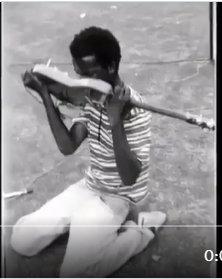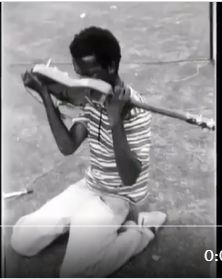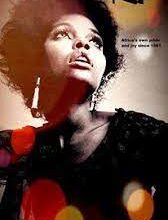The Late : Manu Kambani – Musician – Lead Guitarist Maestro, was the Jimi Hendrix of Zimbabwe
Walking Down The Memory Lane - Lest We Forget

Manu Kambani

In the 70’s, Zimbabwe had rock bands like, Dr Footswitch, Eye of Liberty, The Eye Q Band. Joburg Bound was one of the rock songs done by Elisha Josamu. Arguably, the best rock song ever composed in Zimbabwe in the ’70’s was Shumaira, composed by one lead guitarist guru called Manu Kambani who had been raised in Mbare. His young brother Nicholas Kambani was the Lead guitarist for The Gypsy Caravan Band.
Manu Kambani – Lead Guitarist Maestro, the Jimi Hendrix of the then Rhodesia, debatably was one of the extremely talented guitarists, Africa and possibly, the whole world had even seen. ZimLegends founder and Executive Director, Joel Masuka, grew up within the same neighborhood with Manu and his young brother and guitarist Nicholas. Their parent’s house was 4 streets away from my parent’s house, which was on Ayema Avenue, Mbare, then National in Harare. By Joel Masuka
Story Below – By ZimLegends Contributor : Tapfuma Machakaire
If you ask Zimdancehall music fans about who the once revered lead guitar genius of the 1970’s, Manu Kambani, was, they are likely to be clueless.
It is understandably so because, firstly, they do not have an appreciation of what they term “archaic” music and secondly, there is very little information in the public domain about social life in Rhodesia during the colonial era. Another obvious reason is there was no internet, no social media, and the few newspapers that exited then had more “serious” issues to grapple with in the midst of a protracted war of liberation.
But those who grew up during that era still have vivid memories of the gifted artists of their time as summarized by Moses Mrehwa. Mrehwa, who is on a WhatsApp group of rock enthusiasts, did his secondary education at Mrehwa Mission in the seventies. He says; “Mere mention of the name Manu or Mano Kambani brings memories of the festivals and pungwes of the seventies. We grew up in the rock era and musicians like Mano were our local rock idols. He was a genius on the guitar doing covers of the trending rock hits then. The brother was just good, he was our own reincarnation of Jimi Hendrix. We really miss guys like Mano.”
Manu was adored for his ability to mimic the mesmerizing antics of Jimmi Hendrix that include playing the guitar with his teeth, strumming it from his back, and even burning the guitar on stage (although unlike Hendrix, Manu would burn a fake guitar)
Talking of newspaper coverage of the rare rock talent back then, Manu Kambani made history when he featured in a leading pro-white publication that could not resist his wizardry with the lead guitar.
“Jimi Hendrix is dead but Manu is alive” was the message inscribed on a T-shirt that Manu was wearing in a picture that appeared on the front page of the Rhodesia Herald in 1972.
It was one of the rare occasions that a black face appeared on the front page of the white-owned national newspapers.
Manu had performed at a musical festival held at Gwanzura stadium where he had out-shone everyone by his unique guitar solos and stage act.
There was an outcry from the conservative whites criticising the appearance of this picture and accusing the editor of the Rhodesia Herald of lowering white standards. Blacks didn’t feature much in the official papers, unless, perhaps, they were a dead “terrorist”. For Manu however, this was a great achievement in his life. ZimLegends learnt that up to the time of his death, he kept that newspaper in a picture frame at his home.
Born on Christmas Day, 25th December, 1949 Emmanuel Kambani was a guitar connoisseur at an early age. He grew up in Pazarangu street in Mbare in the capital city Salisbury now Harare At 9 years he was already partnering with his grandfather also called Emmanuel, a popular solo guitarist and musician on musical shows which drew large crowds around farms in the Mazowe area. Alick Santana, Manu’s father confirmed to the now defunct Parade magazine that his son learnt his guitar mastery from his grandfather.
Manu completed his secondary education at St Paul’s Musami Mission in 1966 and formed the Whitstones pop group with Dave Marumahoko, Anselmo Homo, Kito Misikani, Cookie Tutani and Jacko Muvengwa. He became very popular at Mbare’s Stodart Hall where the group used to perform.
With Springfields, then resident band at Mutanga Modern Restaurant and Night Club in Highfield, Manu performed with Thomas Mukanya Mpfumo. After a short stint with Mr Clever Mudhara Mutanga and brothers, Manu left to join The Great Sounds led by Elias Band and owned by late RBC African Service broadcaster, Dominic Mandizha.
After the Great Sounds, Kambani joined a number of groups including Limpopo Jazz Band, Echo Limpopo (Maripopo) and the Sound Effects where he played along legendary drummer Jethro Shasha who lived in the same Engineering Lines, Highfield neighbourhood with JM Archives founder.
In 1979, along with Stan Chauruwa, Tapera Muringa, Jacko and Nicholas Muvengwa Kambani formed Dr Footswitch Band. After two years with Dr Footswitch, Manu left and joined Dave Hughes and The Blizzards and recorded the album ‘Straight Line’ before going on a tour of South Africa where he had the opportunity to back Dorothy ‘Aunty Dot’ Masuka of Nontsokolo, MaGumede and Gona raMachingura fame.
At the time of his death on 6th March 1995, Manu Kambani was a band member of the Freewheelers.
A flash back at the rise in popularity of Rock music reveals that in 1970, one of Zimbabwe’s leading music promoters, Jack Sadza, having watched Woodstock, organised a successful rock festival at Nyamanhindi Hotel, near Basil Bridge, a remote site about 30km outside Mutare.Woodstock Music and Art Fair, commonly referred to simply as Woodstock, was a festival held August 15–18, 1969, on a dairy farm in New York, 65 kilometres southwest of the town of Woodstock which attracted an audience of more than 400,000 people.
Similarly, the Nyamanhindi festival attracted thousands of youths of all races who were united under one banner of rock music, in a country that did not allow races to mix freely. Music fans who followed Eye of Liberty and Wells Fargo bands came from as far as Bulawayo, Harare, Gweru and Mutare. The festival went on for three days until the police moved in to disperse the crowds.
Apart from police harassment, the festival was very peaceful. The festival was described by the Umtali Post editorial and later Rhodesia Herald as disgusting because they claimed it encouraged dagga smoking. They also reported that blacks were seen having sex with white girls at the festival and if such festivals were allowed to continue this would mean the end of white civilisation in Rhodesia. Consequently, all future music festivals were banned.
Manu Kambani had an outstanding performance at that festival.
In 1972, promoter Sadza tried another festival which he renamed the Rock-Band Contest. He was refused permission to hold it in an open air venue as before but allowed to hold it in an enclosed venue where police would have full control of the crowds. Thus, another music festival was held in Harare’s Gwanzura Stadium where guitarist It was this particular event that saw Manu appearing on the front page of the next day’s Rhodesia Herald wearing a T-shirt with the words:
“Jimi Hendrix is dead but Manu is alive”. Its now Jimi Hendrix and Manu Kambani are dead but Rock music lives on-is it slowly fading away?
@sunguracentral has a tweet on him that says, _”They say in 1972, a Rock Festival was held near Mutare. Kambani stole the show, wearing a T-Shirt with the words *“Jimi Hendrix is dead: Manu Kambani is alive”* on the front. Kambani appeared on the front page of the Rhodesian Herald, unheard of then for a black person


